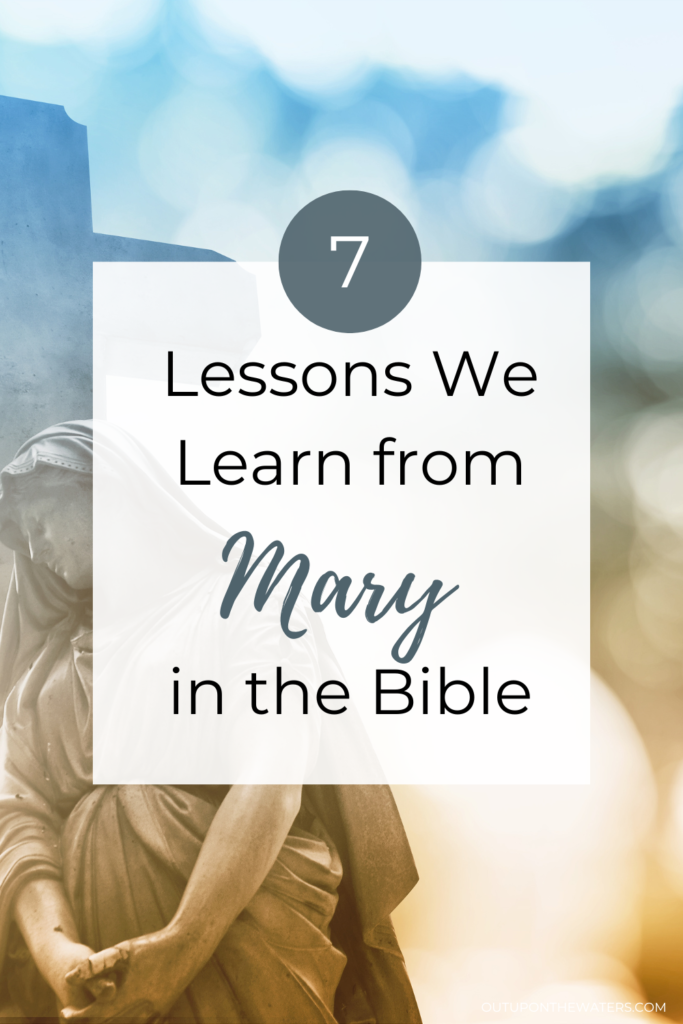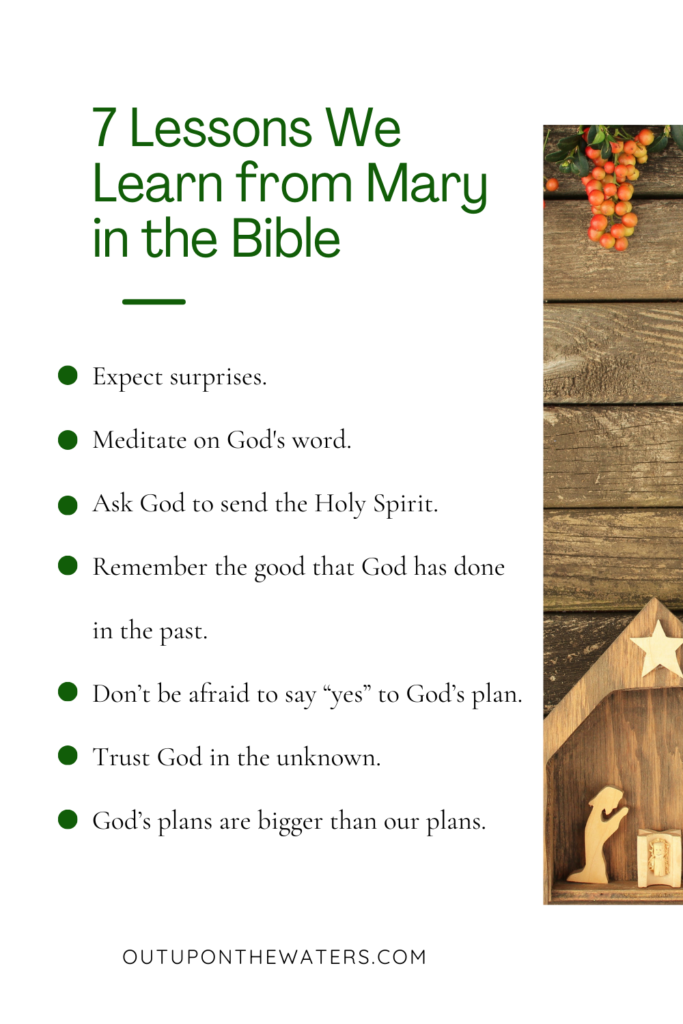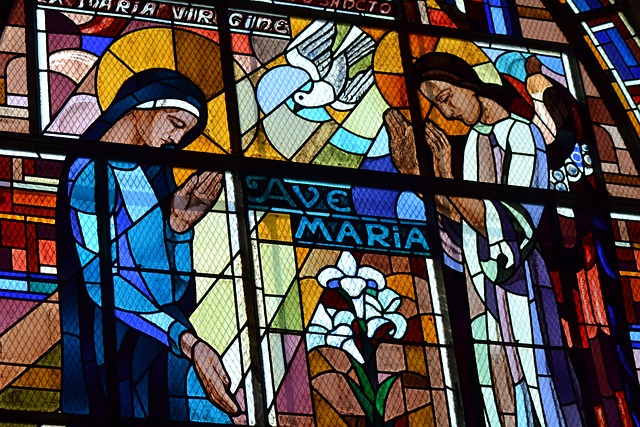We can learn many lesson from Mary, the mother of Jesus. The life of Mary is one that is full of surprises, and one that shows us an admirable example of faith, trust, and the willingness to risk things for the kingdom of God. Here are five lessons about expecting surprises and stepping out in faith that we can learn from the story of Mary.
The Story of Mary, The Mother of Jesus
The story of Mary, the mother of Jesus, is one of the most well known Bible stories. Mary is chosen by God to bear a son who will be the Messiah, who will come to fix the brokenness of the world and the brokenness inside the human heart. Mary will give birth to the Son of God himself, in God’s grand plan to restore and redeem all things. We may be used to hearing that Jesus, the Messiah, died on the cross for our sins. And in this quick statement, there is so much depth. In Jesus’ life, death, resurrection, and ascension, God takes on human nature, submits it to death, and rises victorious from the grave, thus introducing a change in human nature, a change that the rest of us can enter into and allow to transform us into the creatures – in harmony with God, each other, and the world around us – that God always intended us to be.
There are some pieces in the story of Mary that we should pay special attention to, some pieces that give a glimpse into our relationship with God, and how we fit into God’s story. The story of Mary gives us an example of a regular person whom God uses to accomplish his purposes. And this story shows us how God’s plans often introduce surprises and challenges, and how God invites us to take bold steps in faith.

7 Lessons we Learn from the Story of Mary
There are many lessons that we can draw from the life of Mary, the mother of Jesus. Here are 7 bold and inspiring lessons about expecting surprising, trusting God’s plan, and leaping into the unknown.
- Expect surprises.
- Meditate on God’s word.
- Ask God to send the Holy Spirit.
- Remember the good that God has done in the past.
- Don’t be afraid to say “yes” to God’s plan.
- Trust God in the unknown.
- God’s plans are bigger than our plans.

Expect surprises.
Mary was surprised at the news that she was going to give birth to the Messiah. Her first reaction when the angel Gabriel told her that she would have a son, who would “ reign over Jacob’s descendants forever” (Luke 1:33) is one of incredulity. She asks, “How can this be…since I am a virgin?” (1:34). Mary expresses doubt over God’s plan, because it seems impossible. And yet, when Gabriel explains to Mary that she will be filled with the Holy Spirit, and will give birth – miraculously – to the Son of God, she accepts God’s will for her life and lays aside her doubt.
Meditate on God’s word.
When the angel Gabriel appears to Mary, he says, “Do not be afraid, Mary; you have found favor with God. You will conceive and give birth to a son, and you are to call him Jesus. He will be great and will be called the Son of the Most High. The Lord God will give him the throne of his father David, and he will reign over Jacob’s descendants forever; his kingdom will never end.”
This reference to the throne of David and Jacob’s descendants is a reference to the promises that God made to Abraham – promises that followed through Abraham’s family line in Jacob and in king David. Mary knows God’s story, she knows the history of God’s people, and she knows the promises that God has made, promises of a big family tree, a new home, and blessing. She also knows that these promises are supposed to be fulfilled in a coming Messiah, a saviour. When we are familiar with God’s story, then we are better equipped to take our place in it.
Ask God to send the Holy Spirit.
The angel Gabriel tells Mary that, “The Holy Spirit will come on you, and the power of the Most High will overshadow you” (Luke 1:35). Mary was filled with the Holy Spirit, the very power of God.
After Jesus’ death, resurrection, and ascension, he sent the Holy Spirit to dwell in each one of his followers. We are given access to the power of God when we ask him to come and live in our hearts. When we invite the Holy Spirit into our lives, we can trust that God will come and move in us. He will change us, and he will change the world around us. If you want to follow God more closely, be open to using your gifts to bring about his kingdom and ask God to move in you and empower you.
Remember the good that God has done in the past.
When Mary visits her cousin Elizabeth, after receiving news that both she and Elizabeth are pregnant, Mary sings a song – which became known as the Magnificat – in praise to God. She begins, “My soul glorifies the Lord and my spirit rejoices in God my Savior.” She recognizes the great things that God has done for her, and she recalls what God has done in the past. She rehearses some of Israel’s history, remembering the “mighty deeds” that God has done, when he has “brought down rulers from their thrones but has lifted up the humble”, when “he has filled the hungry with good things but has sent the rich away empty” (Luke 1:51-53).
Mary is enacting a common theme that we find in the Bible: when you want to strengthen your faith, when you are facing something unknown and potentially frightening, something challenging, then remembering where God has come through in the past can give you confidence that he will do so again in the future.
Mary does this again, after the birth of Jesus, but this time remembering all the things that God had done for her personally (Luke 2:19;51). The more that we remember God’s provision and guidance – especially those times in our own lives where God pulls through for us – the easier it is to trust him in the challenging times. And the more we rehearse the bigger stories of God’s action in the world, the more we immerse ourselves in Scripture, the more we know of God’s character.
Don’t be afraid to say “yes” to God’s plan.
Mary’s “yes” was risky. She was a young, unmarried woman. When Joseph learned that she was pregnant, his first plan was to quietly break off the engagement. (Actually, Mary and Joseph were legally married according to the custom at the time, but had not yet consummated the marriage – this would be something comparable to our current period of engagement before a marriage. The important point in this dynamic is that Mary could not have been pregnant by Joseph, and he knew that – barring divine intervention, which this was – she would have been unfaithful.)
This would have left Mary in a fairly desperate situation. If Joseph had not gone through with the engagement, no one would have married Mary in the future, and Mary’s child would have been deprived of a family name, an inheritance… And so Mary’s “yes” was risky. She was facing something that seemed impossible, and something that carried a fairly hefty risk with it.
All she had to rely on was the angel’s assurance that, “The Holy Spirit will come on you, and the power of the Most High will overshadow you. So the holy one to be born will be called the Son of God….For no word from God will ever fail” (Luke 1:35-37). Mary’s faith in God’s plan was strong and confident enough that she could step into uncertainty and take great risks, knowing that God’s promises would not fail. Mary gives us an example of what it looks like to boldly say “yes” to God’s plan, a “yes” that acknowledges risks and takes a leap anyway.
Trust God in the unknown.
Mary isn’t given the details of God’s plan. She doesn’t know what her next steps will be. She only knows that she will give birth to the Son of God, and she is assured that this child will be the Messiah and that his kingdom will never end. But there are many unknowns in between childbirth and the everlasting kingdom of God. Mary is invited to step into a huge unknown.
There may be times in our lives, as well, when we are facing the unknown. And there will be times when God invites us not to slow down, not to reassess our plans, but to leap into that unknown with faith and trust.
God’s plans are bigger than our plans.
Throughout the Bible, God is constantly showing us that his plans are bigger than our plans. Our expectations are shattered, and suddenly God is showing us that the plan is actually bigger, always bigger.
This is true with the story of Mary. Mary’s plans were probably to marry Joseph and raise a family in a sleepy little village outside Jerusalem. Maybe she envisioned a nice, quiet life. But what she got was an adventure that would plunge her into the unknown, a promise that God was doing something in her life that would draw her into the bigger story of salvation and redemption, and a Messiah who blew even those expectations to bits, showing that the story was bigger even than earthly peace and prosperity.
Mary was plunged into a story that showed that earthly blessing and a physical kingdom here on earth was never the plan – or at least that it was a poor shadow of the plan for a redemption and renewal of all things, a renewal that would start here and now but only be fulfilled in eternity, in a place and time (that is neither a place nor time) that is both now and not yet, a vision that we can only describe in part.
And if God’s plans are always bigger than our plans, then we would be well advised to hold our plans lightly. Be open to change. Expect surprises. Learn to listen for God’s voice. Leap into the unknown when God calls you there. And trust that God is working all things together for his purposes, for renewal and redemption.
